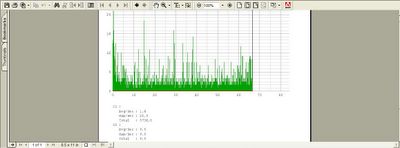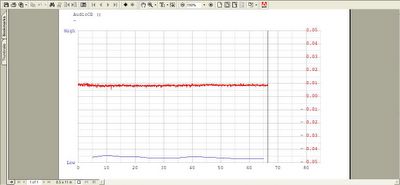Originally Written: Sunday, May 22, 2005
Even the Doctor's biggest enemies, the Daleks are getting iPods. Is it part of their next insidious plot against the Doctor?
I came across this image while doing research for the purchase of an iPod sometime in the near future. The thing that clinched it was my co-worker who is as much a fanatic about sound as I am. He is also a recording engineer. He tested Apple's lossless compression and came to an interesting conclusion. Not only does it work bit perfect, the uncompressed signal is MORE accurate that the original. How is this possible? Well the process of compressing and uncompressing the signal greatly reduces a phenomena called digital jitter. A certain amount of jitter is introduced into every CD during the manufacturing process.
Robert Harley in his book "The Complete Guide to High-End Audio" defines digital jitter as follows: "Timing variations in the clock that synchronizes events in a digital audio system. The clock could be in an analog-to-digital converter that controls when each audio sample is taken. Of more interest to audiophile is clock jitter in digital audio reproduction; the clock controls the timing of the reconstruction of digital audio samples into an analog signal. Jitter degrades musical fidelity."
This has led me to think about ways of digitizing my entire music collection onto an iPod and then running that into a high-end DAC (Digital to Analog converter.) Apple's wireless iPod accessory might do the trick but more research is needed. Who need a remote control? I could literally hold my entire CD collection in my hand with instant access to any piece of music in my collection without ever leaving my chair. Of course it would also sound better than the original CD because of the reduction in jitter. Very interesting. This is definitely worth more thought.
All of this from just wanting to be able to listen to some tunes on the way to work.
Many of you may think that this is a change in my stance against MP3s. What I am against is highly compressed music of dubious legal origin. I object to not only the bad sound quality but also the theft of the artists intellectual property. With Apple's Lossless compression and CD's from my own collection neither of these is an issue. The idea of less than CD quality is pretty objectionable when you consider that CD performance is, in and of itself pretty compromised.





